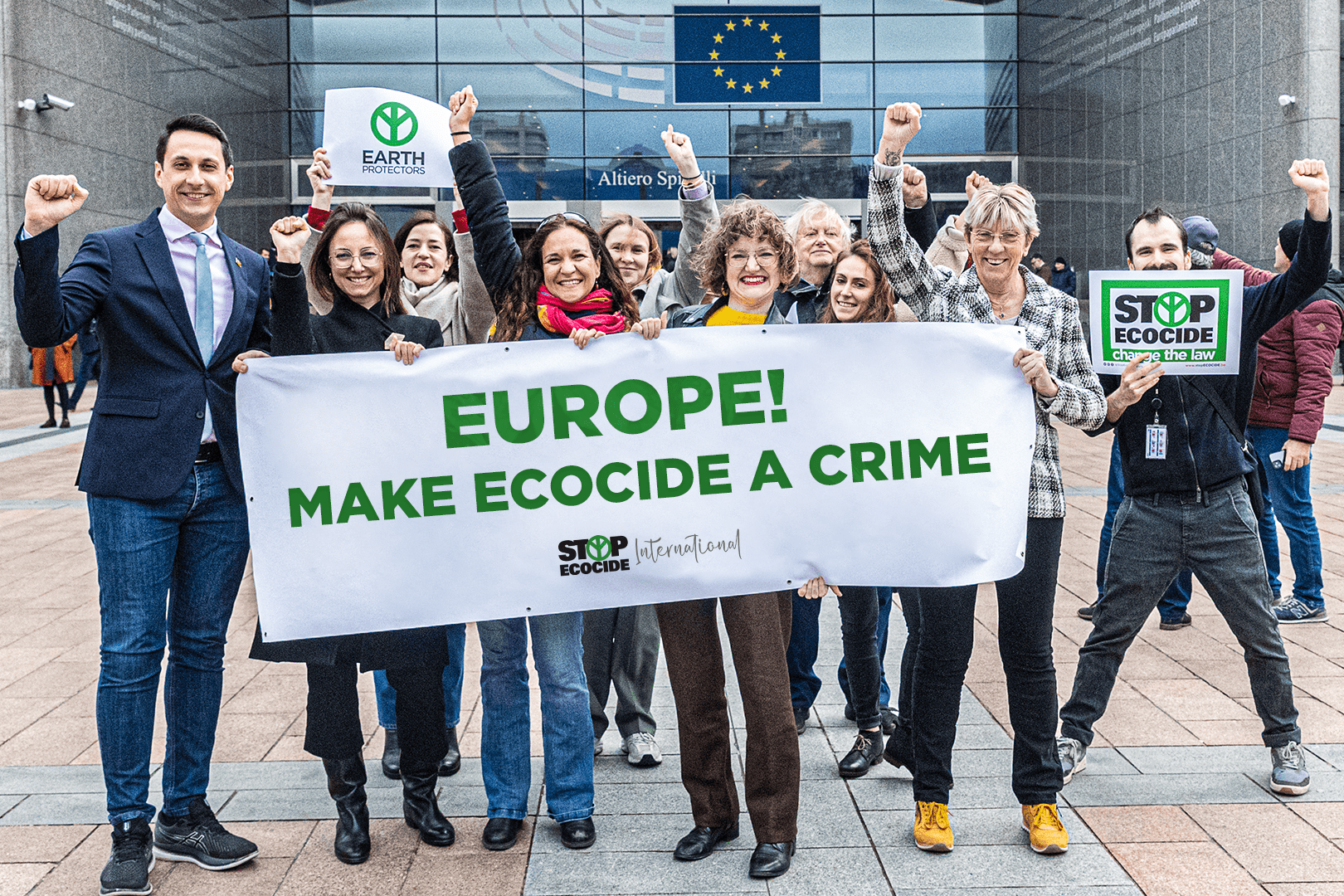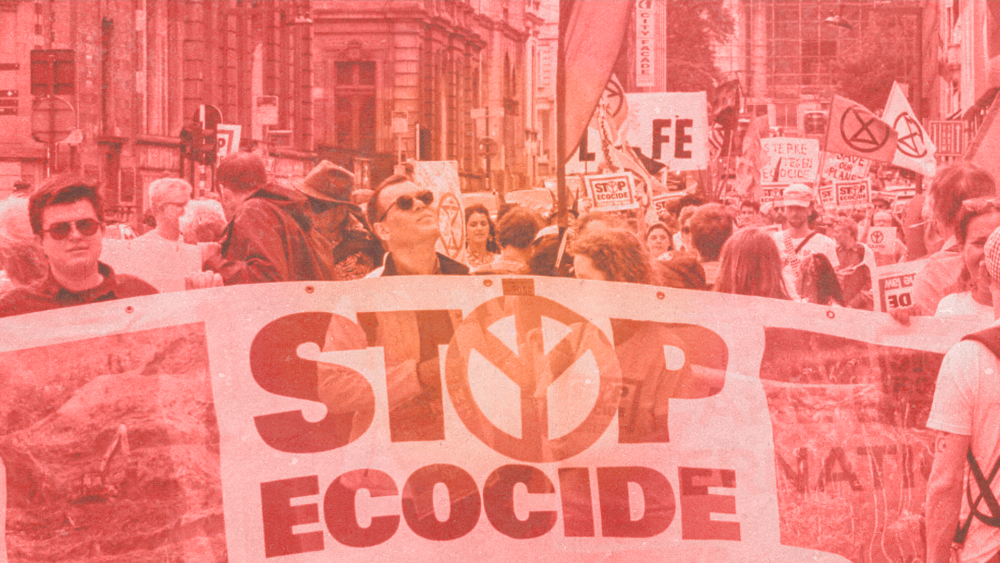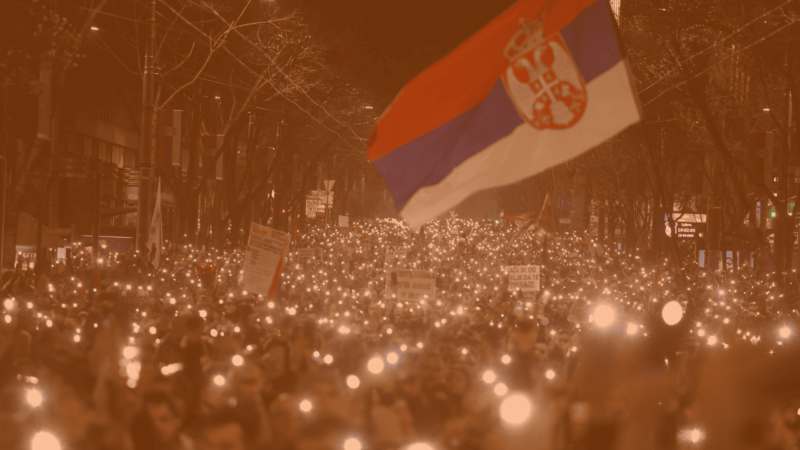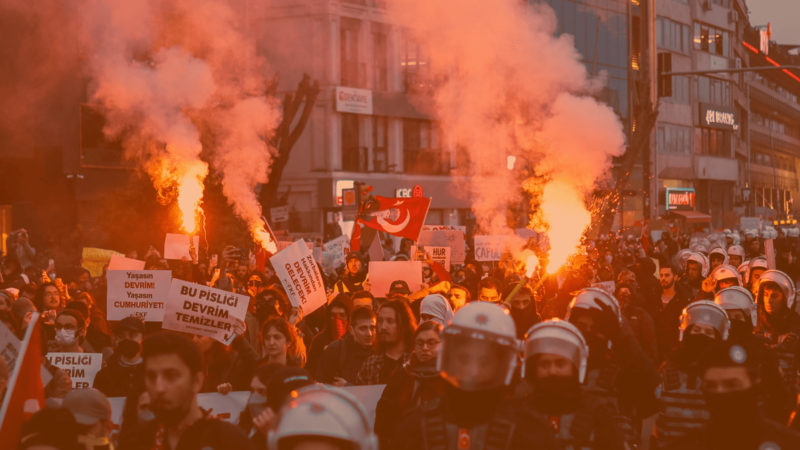On World Environment Day, Stop Ecocide International executive director Jojo Mehta provides an introduction to ‘ecocide law’ and explores recent rapid developments in the progress toward ecocide legislation at national, regional and international levels and the benefits for a just and resilient transition to a sustainable future
What is ecocide?
Mass damage and destruction of nature is increasingly known as ecocide. There is now a rapidly growing global movement to make ecocide a crime at the international level – just like genocide. This initiative is already being engaged with by dozens of governments.
Criminal law is often thought of as a framework for punishment. That is how it works, but it’s not what it’s for. Murder isn’t a crime to punish murderers, it’s a crime to stop people committing murder. Criminal law is meant to be protective law.
The damage that our economic system has been inflicting on the living world in recent decades, whilst largely unintended, has proven to be extremely dangerous to climate, nature and people. Understandably, there is rising global frustration at the slow pace of action to address this danger.

In March, The European Parliament officially declared its support of the inclusion of ecocide-level crimes into the EU’s revised Directive on protection of the environment through criminal law. Negotiations continue on June 13th 2023
The role of ecocide law
There are many examples of environmental regulation around the world, but they are often badly followed, woefully monitored and poorly enforced. Flagship multilateral environmental agreements, like the Paris Agreement, are not legally binding. Genuine action on sustainability and regeneration is a perpetual uphill struggle against business as usual.
This is where ecocide law will be crucially useful – it powerfully reinforces existing laws. A board of directors will approach its obligations very differently knowing that, if it fails to fulfill them, and threatens ecocide as a result, its members could be criminally liable.
Ecocide law helps to shift our cultural mindset. When severe harm to nature is taken as seriously as severe harm to people, we can better understand our responsibilities to the living world on which we entirely depend and make decisions in a far more conscious way.
Importantly, defining ecocide creates a useful lens through which states and industry can look to steer strategic change. The proposed legal definition is concise and clear.
Ecocide means unlawful or wanton acts committed with knowledge that there is a substantial likelihood of severe and either widespread or long-term damage to the environment being caused by those acts.
It’s unreasonable to expect policy makers to know what each sector should do to behave in an ecologically responsible manner. It’s eminently sensible on the other hand to give the experts within those sectors the framework they need to work it out.
Ecocide law can be seen as the protective counterpart to rights law – both to nature rights being developed in many jurisdictions around the world, including the United States, as well as to the human right to a clean, healthy and sustainable environment.
It’s easy to understand this when we realise that our basic human right, the right to life, is protected by the fact that homicide is a crime.
Take action
It’s crucially important that as many states as possible take part in this conversation as it develops around the world.
Ecocide law presents a concrete route to planetary security and a framework for leveling the economic playing field. A framework that holds beyond short-term electoral cycles and will help to steer a safe and just transition to a genuinely sustainable future.
We hope you will join us in driving this crucial global conversation in your own networks and sectors and with your elected representatives.
You can get involved in the growing global movement for ecocide law here.
On Tuesday, June 13, the European Union will be entering the most important stage to date in its ongoing negotiations on the inclusion of ecocide-level crimes in its revised crime directive. Please consider joining 600,000 others and sign the WeMove EU petition here.
Do you want to be informed of DiEM25's actions? Sign up here















